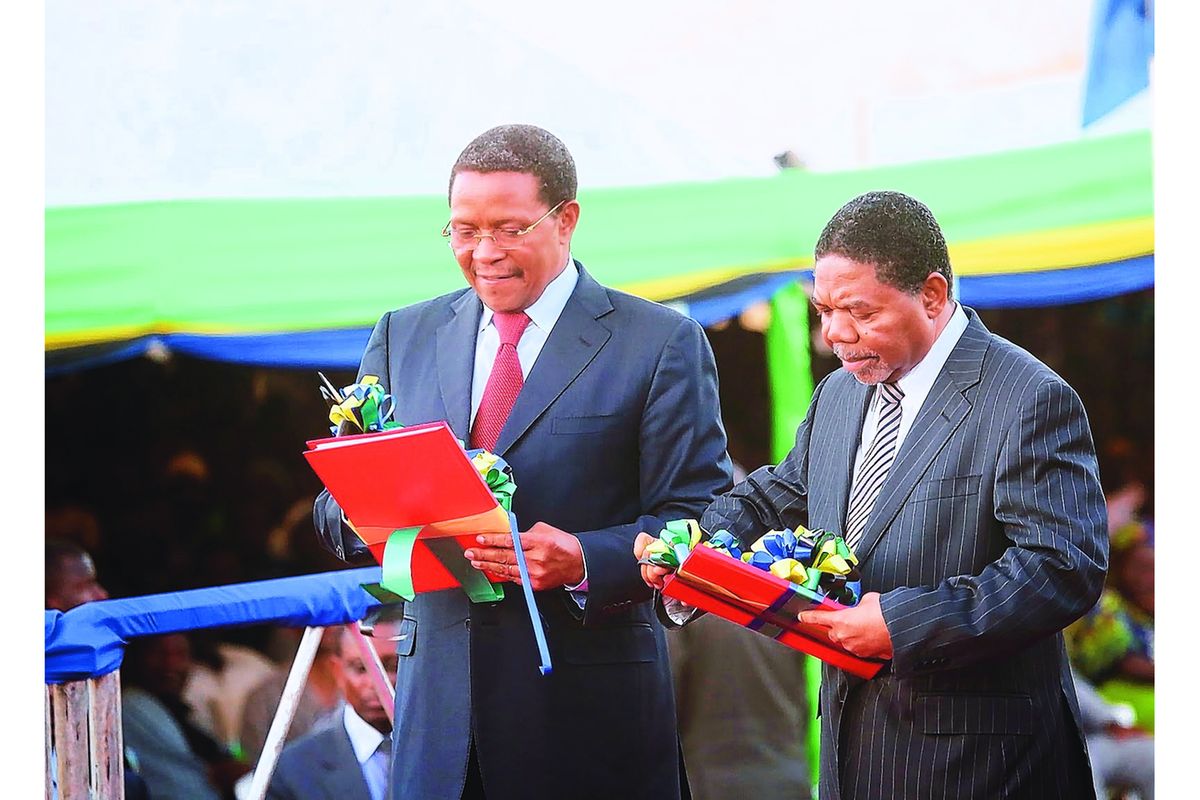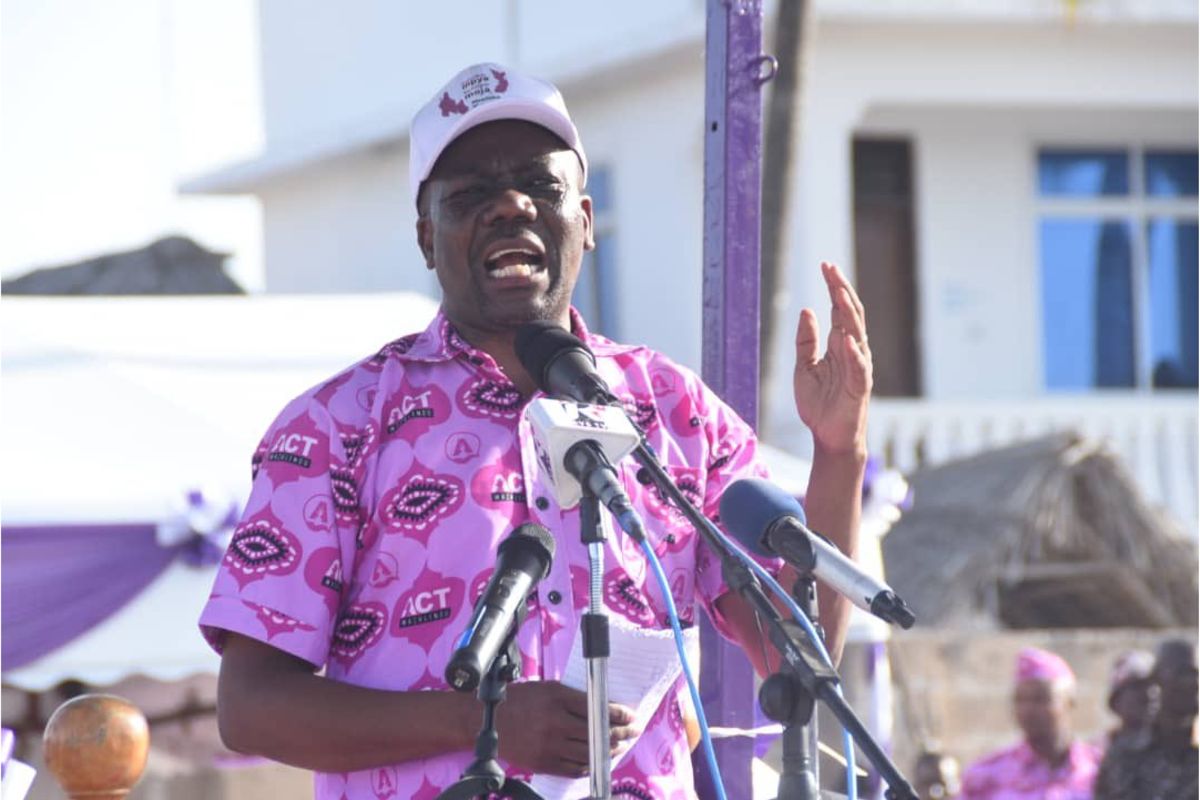
Dar es Salaam. Makamu wa Rais, Dk Philip Mpango amewasihi Wakristo na Watanzania kutoa heshima ya pekee kwa watoto kwa kuwa ni zawadi kubwa kutoka kwa Mungu.
Dar es Salaam. Makamu wa Rais, Dk Philip Mpango amewasihi Wakristo na Watanzania kutoa heshima ya pekee kwa watoto kwa kuwa ni zawadi kubwa kutoka kwa Mungu.
Dk Mpango amesema sasa hivi katika nchi yanasikika mambo ya hovyo na dhuluma dhidi ya watoto ikiwemo watoto kunyanyaswa, kuuwawa na kulawitiwa.
“Tumuombe Mungu msamaha na atujalie neema ya kutambua jinsi yeye alivyowapenda watoto na sisi tufanye mengi ya kuwatunza hawa watoto na kumrudishia Mungu wakiwa weupe kama tunavyoweka ishara ya kitambaa cheupe kumrudishia Mungu,’amesema Makamu huyo wa Rais.
Katika hatua nyingine, Dk Mpango amewataka waamini hao kumshangilia Mungu kwa mvua aliyoileta na kueleza kuwa sehemu nyingine kumekuwa na hali ngumu ya ukame iliyosababisha mifugo kuanza kufa.
“Sasa Mwenyezi Mungu ametuletea neema ya mvua tuitumie vizuri, tulime mazao yetu sasa, tupande ili tuweze kupata chakula.
“Vilevile kila familia tutumie nafasi kupanda miti, tupande miti ya matunda, tupande miti ya kivuli, kila familia walau miti mitatu, miti miwili ya matunda na mmoja kwa ajili ya kivuli kwani nchi yetu imeharibika sana,”amesema.
Share this news
This Year’s Most Read News Stories

Zanzibar terminates land lease offered to British developer
The Revolutionary Government of Zanzibar (SMZ) has terminated a land lease held by British property developer Pennyroyal Limited in Matemwe, the developer has announced.Continue Reading

Tanzania Declares End of Marburg Virus Disease Outbreak

Tanzania today declared the end of Marburg virus disease outbreak after recording no new cases over 42 days since the death of the last confirmed case on 28 January 2025.
The outbreak, in which two confirmed and eight probable cases were recorded (all deceased), was the second the country has experienced. Both this outbreak, which was declared on 20 January 2025, and the one in 2023 occurred in the north-eastern Kagera region.
In response to the latest outbreak, Tanzania’s health authorities set up coordination and response systems, with support from World Health Organization (WHO) and partners, at the national and regional levels and reinforced control measures to swiftly detect cases, enhance clinical care, infection prevention as well as strengthen collaboration with communities to raise awareness and help curb further spread of the virus.
Growing expertise in public health emergency response in the African region has been crucial in mounting effective outbreak control measures. Drawing on experience from the response to the 2023 Marburg virus disease outbreak, WHO worked closely with Tanzanian health authorities to rapidly scale up key measures such as disease surveillance and trained more than 1000 frontline health workers in contact tracing, clinical care and public health risk communication. The Organization also delivered over five tonnes of essential medical supplies and equipment.
“The dedication of frontline health workers and the efforts of the national authorities and our partners have paid off,” said Dr Charles Sagoe-Moses, WHO Representative in Tanzania. “While the outbreak has been declared over, we remain vigilant to respond swiftly if any cases are detected and are supporting ongoing efforts to provide psychosocial care to families affected by the outbreak.”
Building on the momentum during the acute phase of the outbreak response, measures have been put in place to reinforce the capacity of local health facilities to respond to potential future outbreaks. WHO and partners are procuring additional laboratory supplies and other equipment for disease detection and surveillance and other critical services.
Marburg virus disease is highly virulent and causes haemorrhagic fever. It belongs to the same family as the virus that causes Ebola virus disease. Illness caused by Marburg virus begins abruptly. Patients present with high fever, severe headache and severe malaise. They may develop severe haemorrhagic symptoms within seven days.
In the African region, previous outbreaks and sporadic cases have been reported in Angola, the Democratic Republic of the Congo, Ghana, Kenya, Equatorial Guinea, Rwanda, South Africa and Uganda.
Source: allafrica.com

Loud calls for investigation of Zanzibar port, ZSSF & airport
The leader of the ACT Wazalendo, Zitto Kabwe has raised three key issue that he said are hindering the economy of ZanzibarContinue Reading










